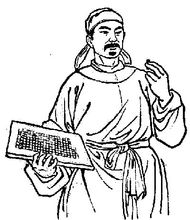In the latter moments of The Machine
that Made Us, a BBC documentary briefly detailing how the Gutenberg Press
came to be, host Stephen Fry remarks that he can imagine the modern world
without airplanes, cars, or telephones, but not the printed word. It’s a
statement I couldn’t agree with more. Without the contributions of Gutenberg,
the Renaissance and Enlightenment would’ve never occurred, meaning the
historical development of capitalism and the liberal democracies it spawned
would be the content of fantasies. As noted in “Out of Sorts: Typesetting Meets
the Industrial Revolution,” chapter seven of Keith Houston’s The Book, “…the printing press—blew apart
the insular world of Europe’s scholars, scribes, and clergy” (128).
While watching Fry’s authentic amazement
in the face of Gutenberg Bibles and replica Presses, I began to think of
Gutenberg’s invention in relation to the canon of (what I’ve deemed) the
Pillars of Decentralization. Within this canon lie the ideas of Copernicus
(decentralized our planet’s position in the galaxy), Darwin (decentralized our species’
place in the Animal Kingdom), Nietzsche (decentralized our species’
metaphysical positioning in the universe), and Gutenberg, whose printing press
decentralized knowledge, which hitherto had been concentrated in the hands of
an elite class, and thus helped to give birth to a civically engaged citizen.
Gutenberg’s invention predates the work of these scholars, and it’d be
difficult to imagine the masses having a basic understanding of the solar
system or Darwinism without the mass production of books.
Philosophically speaking, there have been
thinkers who have dwelled on the pitfalls of the democratization of knowledge
via the printing press and the changing ways in which we read. In particular,
Danish philosopher Søren Kierkegaard feared that the widespread distribution of
newspapers would create a citizen satisfied in simply being aware of the
political issues of their day. One might imagine Kierkegaard having strong
opinions on the way civically engaged citizens read today, receiving their news
from an infinite amount of online publications and social media behemoths such
as Facebook and Twitter. The docile holder of opinions aside, the mass
distribution of text has also led to inundation of the market with material
cultural critic Dwight Macdonald would label “Masscult,” mediocre works of
folly meant to do the thinking for the intended audience. These lamentations on
the way we read have existed for as long as Gutenberg’s Press. Houston notes
that in the early days of printing, Europe’s intelligentsia placed a high moral
value in the “patient copying-out of texts” (128). They must’ve viewed the mass
dissemination of books as a vulgar activity, just as today’s critic would scoff
at the notion that anyone and everyone, within certain capabilities, could publish
their own book.
The way in which we read, and the way in which books are disseminated, have simultaneously changed and remained roughly the same since the time of Gutenberg. As mentioned above, several generations have pivoted away from the printed word towards e-books and websites. While a hundred years ago, one might have done their day’s reading in the form of a newspaper or novel, today one receives their “prose” in the form of Tweets and Instagram captions, reading hundreds of “short stories” a day. Censorship remains an issue, as displayed in the book burnings which permeated the Third Reich and other parts of the world in the Twentieth Century (and which continue today), which ties the evolution of political systems with that of the book. We all read what we want today, for the internet provides as much “evidence” for Darwinism as it does for the assassination of John F. Kennedy and the hands of Castro-allied extraterrestrials. It is no surprise that our current socio-political epoch is marred by “fake news” and “alternative facts,” as the way we read, and what we read, is democratizing at an unstoppable rate.
Author’s note: Forgive my incessant quoting of white male intellectuals, it is these figures who have shaped the way I read. I blame the academy for my Eurocentric inclinations.



